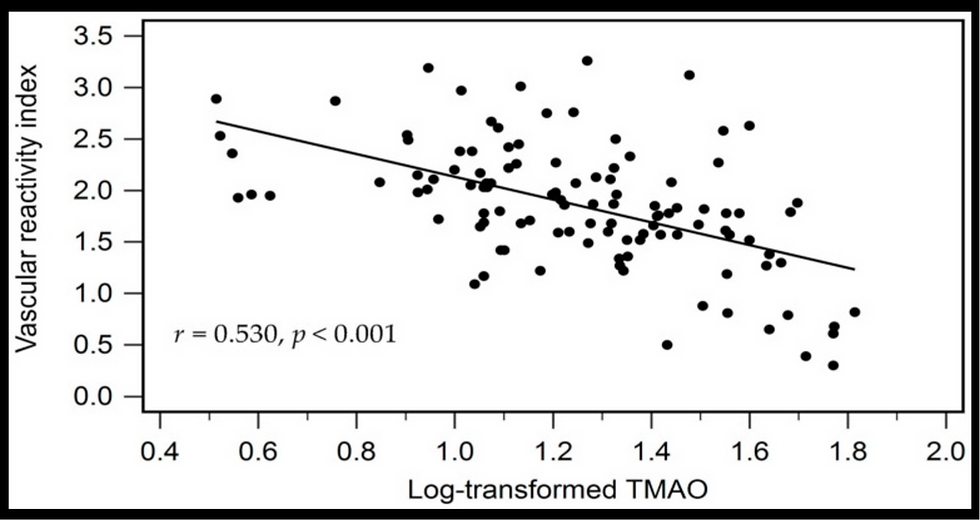“Inflamm-ageing” Learn how to use endothelial dysfunction for detection & monitoring treatment
- heartlung
- Jan 16, 2023
- 2 min read

Eur Heart J. 2020 Feb 1.
Inflamm-ageing: the role of inflammation in age-dependent cardiovascular disease.
Liberale L1,2, Montecucco F3,4, Tardif JC5, Libby P6, Camici GG1,7,8.
Author information
1 Center for Molecular Cardiology, University of Zürich, Wagistrasse 12, Schlieren CH-8952, Switzerland.
2 Department of Internal Medicine, First Clinic of Internal Medicine, University of Genoa, v.le Benedetto XV 10, 16132 Genoa, Italy.
3 IRCCS Ospedale Policlinico San Martino Genoa – Italian Cardiovascular Network, L.go Rosanna Benzi 10, 16132 Genoa, Italy.
4 First Clinic of Internal Medicine, Department of Internal Medicine and Centre of Excellence for Biomedical Research (CEBR), University of Genoa, v.le Benedetto XV 10, 16132 Genoa, Italy.
5 Montreal Heart Institute, Université de Montreal, Rue Bélanger 5000, Montreal, QC H1T 1C8, Canada.
6 Division of Cardiovascular Medicine, Department of Medicine, Brigham and Women’s Hospital, Harvard Medical School, Francis Street 75, Boston, MA 02115, USA.
7 Department of Cardiology, University Heart Center, University Hospital Zurich, Rämistrasse 100, 8091 Zurich, Switzerland.
8 Department of Research and Education, University Hospital Zurich, Rämistrasse 100, 8091 Zurich, Switzerland.
Abstract
The ongoing worldwide increase in life expectancy portends a rising prevalence of age-related cardiovascular (CV) diseases in the coming decades that demands a deeper understanding of their molecular mechanisms. Inflammation has recently emerged as an important contributor for CV disease development. Indeed, a state of chronic sterile low-grade inflammation characterizes older organisms (also known as inflamm-ageing) and participates pivotally in the development of frailty, disability, and most chronic degenerative diseases including age-related CV and cerebrovascular afflictions. Due to chronic activation of inflammasomes and to reduced endogenous anti-inflammatory mechanisms, inflamm-ageing contributes to the activation of leucocytes, endothelial, and vascular smooth muscle cells, thus accelerating vascular ageing and atherosclerosis. Furthermore, inflamm-ageing promotes the development of catastrophic athero-thrombotic complications by enhancing platelet reactivity and predisposing to plaque rupture and erosion. Thus, inflamm-ageing and its contributors or molecular mediators might furnish targets for novel therapeutic strategies that could promote healthy ageing and conserve resources for health care systems worldwide. Here, we discuss recent findings in the pathophysiology of inflamm-ageing, the impact of these processes on the development of age-related CV diseases, results from clinical trials targeting its components and the potential implementation of these advances into daily clinical practice.
Published on behalf of the European Society of Cardiology. All rights reserved. © The Author(s) 2020.
For permissions, please email: journals.permissions@oup.com.
KEYWORDS:
Cardiovascular disease; Endothelial dysfunction; Inflamm-ageing; Inflammation; Vascular ageing
View Related Publications
Low grade inflammation as a common pathogenetic denominator in age-related diseases: novel drug targets for anti-ageing strategies and successful ageing achievement.
Candore G, Caruso C, Jirillo E, Magrone T, Vasto S.
![Lipoprotein(a) levels predict endothelial dysfunction in maintenance hemodialysis patients: evidence from [VENDYS] vascular reactivity index assessment](https://static.wixstatic.com/media/dac531_5285607cc591409a9d83746f042af7c6~mv2.png/v1/fill/w_980,h_980,al_c,q_90,usm_0.66_1.00_0.01,enc_avif,quality_auto/dac531_5285607cc591409a9d83746f042af7c6~mv2.png)


Comments